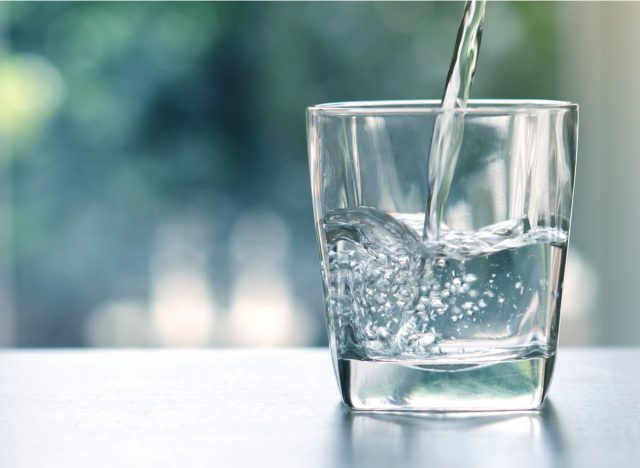Saturday, June 17
Weight Loss Slows Aging
Switching to a diet full of fresh veggies and low in processed foods could do wonders for your brain's biological age, new research shows.
According to the international team of researchers who ran the study, eating a Mediterranean diet rich in vegetables, seafood, and whole grains – or even just following dietary guidelines – appears to slow the signs of accelerated brain aging typically seen in obesity with as little as 1 percent loss in body weight.
Brain scans taken after 18 months showed the participants' brain age appearing almost nine months younger than expected, compared to estimates of their brain's chronological age.
Like the participants in the clinical trial, you might not feel as old as the years you've lived, or perhaps your body feels like it's aging faster than you are – this is the difference between biological and chronological age.
Either way, research shows your body's biological age is much more than a feeling: Signs of biological aging can be found dotted along your DNA, etched onto the ends of your chromosomes, or as this study suggests, in the loosening connections of your brain.
While a growing body of research suggests that biological aging brought on by stressful events could be reversible, this new study shows that improving your diet may be one of the simplest options to improving body condition, irrespective of the years. READ MORE...
Tuesday, November 30
Breakfast Habits
Thankfully, we talked to some expert dietitians to get their take on things. Here are the best breakfast habits that actually work for weight loss, and for more healthy tips, make sure to check out The 12 Foods That Drive the Most Weight Loss of All.
1 Eating enough protein

One of the best and most effective breakfast habits for weight loss is making sure you're eating enough protein.
"Protein is the leading macronutrient for satiation and can help your habit of reaching for snacks right after you eat breakfast," says Courtney D'Angelo, MS, RD, author at GoWellness, "so you can try eating foods like eggs, yogurt, and turkey sausage, or you can add protein powder to your coffee or smoothie.
Get started with one of these 19 High Protein Breakfasts That Keep You Full.

D'Angelo also believes that drinking water before, during, and after breakfast is one of the keys to healthy weight loss.
"Staying hydrated supports a healthy digestive system, and having healthy digestion can lead to healthy weight," says D'Angelo, "and while most people wake up and crave their morning coffee, you should instead consider reaching for a glass of water first." TO READ MORE, CLICK HERE...
Saturday, September 25
Flawed Research on Calories
Now, a new review of our understanding of weight gain indicates that people are not necessarily failing at diets, it’s the diet message of moving more and eating less that doomed their efforts from the start.
Hormonal changes are the primary driver of excess fat storage
The paper, published in the American Journal of Clinical Nutrition offers an alternative model to the eat-less-move-more message and argues that success in weight loss, as well as weight-loss maintenance, is more about what you eat and less about how much you eat.
Weight loss, the study found, is all about our hormonal response to certain macronutrients. Study authors include several of the most prominent nutrition scientists in the country. READ MORE
Saturday, February 6
Counting Calories -- Weight Loss
 I was not concerned about my weight until right around 1990. Prior to that year, I ate whatever I wanted to eat, I ate as much as I wanted to eat, and I did not care about sugars, fried foods, or the consumption of alcohol. However, prior to 1990, I was extremely active in my daily life. I was exercising regularly and very physical in everything that I did... For example, I would travel down to the Outer Banks of NC and spend 4-6 hours body surfing without stopping.
I was not concerned about my weight until right around 1990. Prior to that year, I ate whatever I wanted to eat, I ate as much as I wanted to eat, and I did not care about sugars, fried foods, or the consumption of alcohol. However, prior to 1990, I was extremely active in my daily life. I was exercising regularly and very physical in everything that I did... For example, I would travel down to the Outer Banks of NC and spend 4-6 hours body surfing without stopping.
In 1990, I was 43 years old and had stopped smoking cigarettes (cold turkey) at the age of 40 and had gained 30 pounds which was starting to bother me. To stop the weight gain, I started counting my FAT GRAMS each day and after 3 months realized that if I ate above my AVERAGE INTAKE, I gained weight and if I ate below my AVERAGE INTAKE, I lost weight.
While this was going on, I was also running 5 miles a day, 7 days a week, until my knees started to hurt, then I continued the exercising by walking as fast as I could. My weight went up and down and never really stabilized... After a year or two, my weight loss concerned were all but ignored and I ate whatever I wanted to and in whatever amounts.
At the age of 60, my weight loss concerns resurfaced and I tried all sorts of diet plans, some of which were very restrictive, while others were not really enjoyable due to what it was that they wanted me to eat. My exercising at the gym was off again/on again as well... and, my weight went up and down but more up than it went down.
A nurse told me during one of my chemo treatments that exercising was not really responsible for weight loss... that the only way to lose weight was to simple EAT LESS whether or not that food was healthy did not really matter; however, eating healthy would lay the foundation to prevent diseases and help me live longer.... and, that diets were, for all intents and purposes, a waste of money.
It took a couple of years for that to sink in, but today, I follow NO DIET PLAN(S)... and while I do exercise when I can, my main focus is COUNTING CALORIES with the intent of eating LESS... and my food intake is HEALTHY.
- No sugars.
- No friend foods.
- No processed foods.
- No alcohol.

